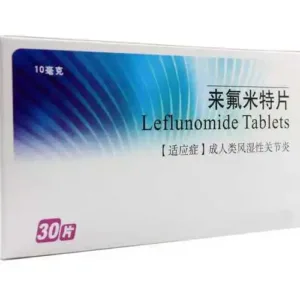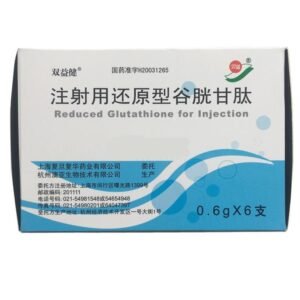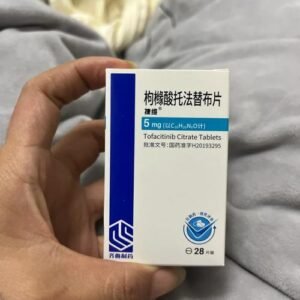Leflunomide Tablets
Effects and efficacy:
Used to treat adult rheumatoid arthritis. Autoimmune diseases such as systemic lupus erythematosus. Anti-rejection reaction of organ transplantation. Others: Wegener’s granulomatosis.
Usage and dosage:
Oral for adult rheumatoid arthritis. Due to the long half-life of leflunomide, it is recommended to be administered at intervals of 24 hours. In order to quickly reach a steady-state blood concentration, referring to foreign clinical trial data and combined with the results of Phase I clinical trials, it is recommended to give a loading dose of 50 mg per day for the first three days of treatment, and then give a maintenance dose of 10 mg or 20 mg per day according to the condition. Non-steroidal anti-inflammatory drugs or low-dose corticosteroids can continue to be used during the treatment of this drug. Oral for lupus nephritis. Choose an appropriate dose according to the condition. The recommended dose is once a day, 20-40 mg at a time, and the dose can be appropriately reduced after the condition is relieved. It can be used in combination with glucocorticoids, or as prescribed by a doctor. Organ transplant patients receive a loading dose of 200 mg per day for the first 5-7 days, and a maintenance dose of 40-60 mg per day, and the dose can be adjusted according to blood drug concentration monitoring. When the blood concentration of A771726 is 60-70mg/ml, most patients tolerate it well.
Adverse reactions:
The main treatments for rheumatoid arthritis include diarrhea, itching, reversible liver enzyme (ALT and AST) elevation, hair loss, rash, etc. In foreign clinical trials, among 1,339 patients with rheumatoid arthritis treated with leflunomide, adverse events with an incidence rate of ≥ 3% included: fatigue, abdominal pain, back pain, hypertension, anorexia, diarrhea, indigestion, gastroenteritis, elevated liver enzymes, nausea, oral ulcers, vomiting, weight loss, joint dysfunction, tenosynovitis, dizziness, headache, bronchitis, cough, respiratory tract infection, pharyngitis, hair loss, itching, rash, urinary tract infection, etc. The above adverse events were all found in the placebo-controlled or positive-controlled sulfasalazine treatment group and the MTX treatment group. Among them, diarrhea, elevated liver enzymes, hair loss, and rash were more obvious in the leflunomide treatment group, and attention should be paid during application. Domestic clinical trial data for the treatment of lupus nephritis show that among 108 patients with active proliferative lupus nephritis treated with leflunomide, 43 people developed related adverse reactions in the first 6 months (20-40 mg/day), with an incidence of 39.81%; during the treatment, adverse events with an incidence ≥ 3% included: hair loss, increased blood pressure, herpes zoster, increased transaminase, diarrhea, loose stools, decreased white blood cells, rash, irregular menstruation, palpitations, abdominal pain; adverse events with an incidence < 3% included: nausea, vomiting, upper respiratory tract infection, decreased platelets, fatigue, gastric burning sensation, anorexia, fever, periodontal pain, visual abnormalities, urinary tract infection, sore throat, cytomegalovirus infection, weight loss, hirsutism, lung infection, etc. Treatment lasted for 7-72 months (10-30 mg/day), and 52 patients were followed up. A total of 12 patients had related adverse reactions, with an incidence of 23.08%. Adverse events with an incidence of ≥3% included: decreased white blood cells, increased transaminase, and thrombocytopenia; adverse events with an incidence of <3% included: upper respiratory tract infection, hair loss, herpes zoster, irregular menstruation, and urinary tract infection.
Drug contraindications:
Allergic to this product is prohibited. It is prohibited during pregnancy and lactation. It is prohibited for children.
Share:
Products
Our offers
Health Classification
Let us work together to protect precious health































